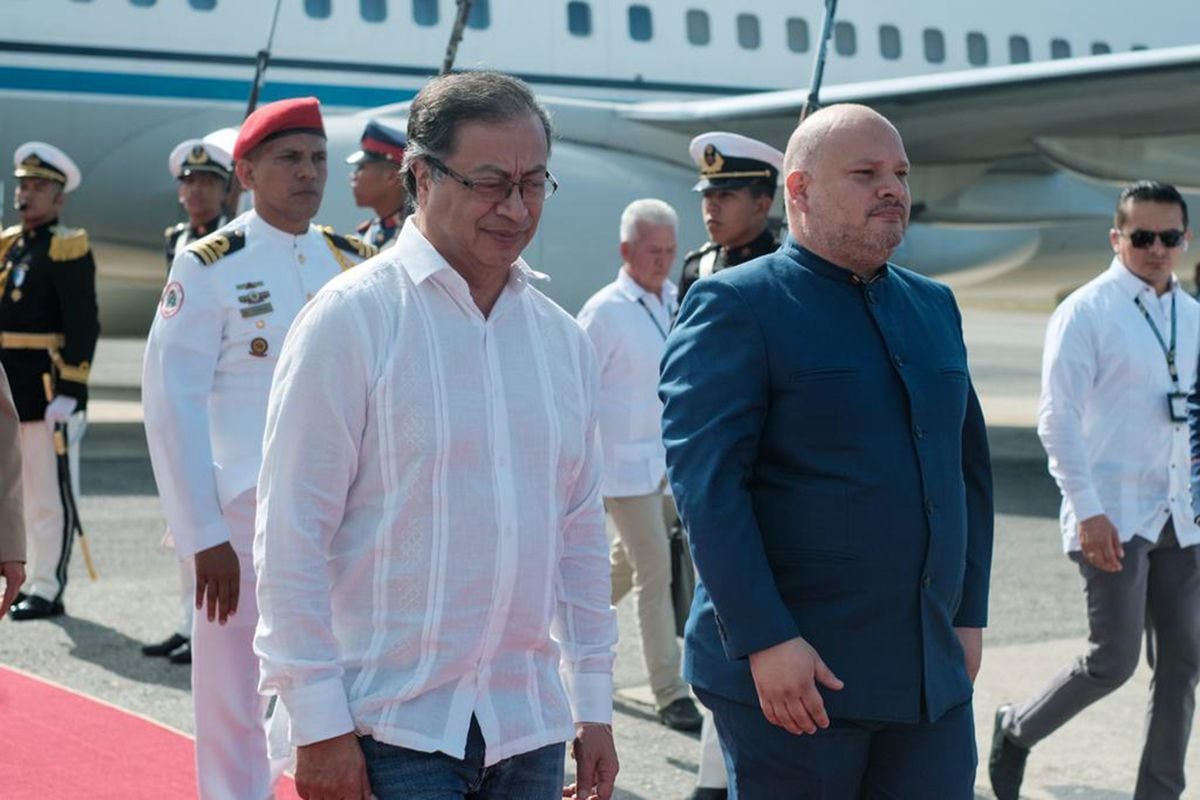After meeting these days in Caracas with Nicolás Maduro, Gustavo Petro wants to wink at the Venezuelan opposition. According to government sources, the president will organize a forum in Bogotá where opponents of the Chavista government will gather. The president assumed the role of mediator in the Venezuelan political crisis, playing on three sides, with Maduro, anti-Chavez and Washington. The international community has pushed for free and fair presidential elections next year as a result of an agreement on the table in Mexico, but negotiations are now at a dead end.
The Venezuelan opposition is not going through its best moment. Faced with no purpose, she saw how Maduro returned to the international scene after two years of seclusion. Most of the opposition parties agreed to abolish the interim presidency of Juan Guaidó and thus dismantle the strategy supported by the United States and a large number of Latin American and European countries to force the fall of Maduro. This never happened. In fact, Chavez’s successor is the President of Venezuela.
Faced with this bleak panorama, opponents have called for primaries in October to select a single candidate to face Maduro in elections scheduled for 2024. Joe Biden’s government approached Chavismo after the start of the Russian invasion of Ukraine in search of energy alternatives to Moscow’s gas. From this sudden and unexpected rapprochement came an agreement so that the oil company Chevron could bypass international sanctions and operate in Venezuela. In return, Washington asked Maduro to return to negotiations with the opposition at the negotiating table in Mexico and to give clear signs of his desire to normalize Venezuelan political life.
In November last year it all seemed to start. The president of the Venezuelan Assembly, Jorge Rodriguez, Maduro’s right-hand man, agreed with the opposition to open Venezuelan assets abroad, which amount to several billion dollars. This money was an important injection for Chavismo. There was a handshake between the two and a promise to meet again soon. In parallel, a humanitarian agreement was being developed that would help the millions of Venezuelans who left the country. However, Chavismo did not sit down to speak again because he maintains that the White House has not kept its promises and has not released funds stagnant in institutions such as the Bank of England and accounts in New York of the Central Bank of Venezuela. .
The rope seemed about to fall apart. Rodriguez hardened his tone two weeks ago by conditioning dialogue on the lifting of sanctions by the United States – Caracas blames its economic woes on more than 700 sanctions weighing down the country. Washington will not do this under any circumstances, because it considers Chavismo to remain rigid and has no intention of opening its hand. “The Chavista always makes some excuses for non-compliance, it’s the same old story,” says a US government source.
the news
Current affairs analysis and the best stories from Colombia, every week in your mailbox
Recepion
With these strong positions, the biggest loser is the opposition. This is where Pietro comes in. Although the mediating country is Norway, it is the President of Mexico who has taken the initiative in recent months. Petro’s idea is to open a space for dialogue in Bogota with the opposition parties. Guaido and other opposition leaders have sharply criticized the Colombian president for restoring relations with Maduro, whom they view as an authoritarian president. This would be an opportunity to overcome these differences and agree on a common message to persuade Chavismo to return to Mexico. Petro is convinced that his success in foreign policy depends on establishing a liberal democracy – as he calls it – in Venezuela, similar to that of other countries in the region.
Subscribe here To the EL PAÍS newsletter about Colombia and receive all the essential information about the current affairs of the country.

“Music buff. Social media lover. Web specialist. Analyst. Organizer. Travel trailblazer.”

:quality(85)/cloudfront-us-east-1.images.arcpublishing.com/infobae/TEQF6EONZRFGLLLDIDD4L2O4EE.jpg)

:quality(75)/cloudfront-us-east-1.images.arcpublishing.com/elcomercio/XU32LRAEZFDDPNVHLFU3CKVBYY.jpg)



More Stories
Sheinbaum, Galvez, Mainz campaign wrap-up, news and more
Sheinbaum and Mainz’s CDMX campaign wraps up: Road Alternatives and Street Closures
Ortega attacks Humberto Ortega and declares him a “traitor to the country”